Prime Minister Narendra Modi’s arrival in China for the SCO Summit represents a pivotal diplomatic moment. Furthermore, this historic PM Modi China SCO Summit visit marks his first journey to Chinese soil in seven years. Additionally, the timing proves significant as India navigates complex global trade relationships amid mounting US tariffs.
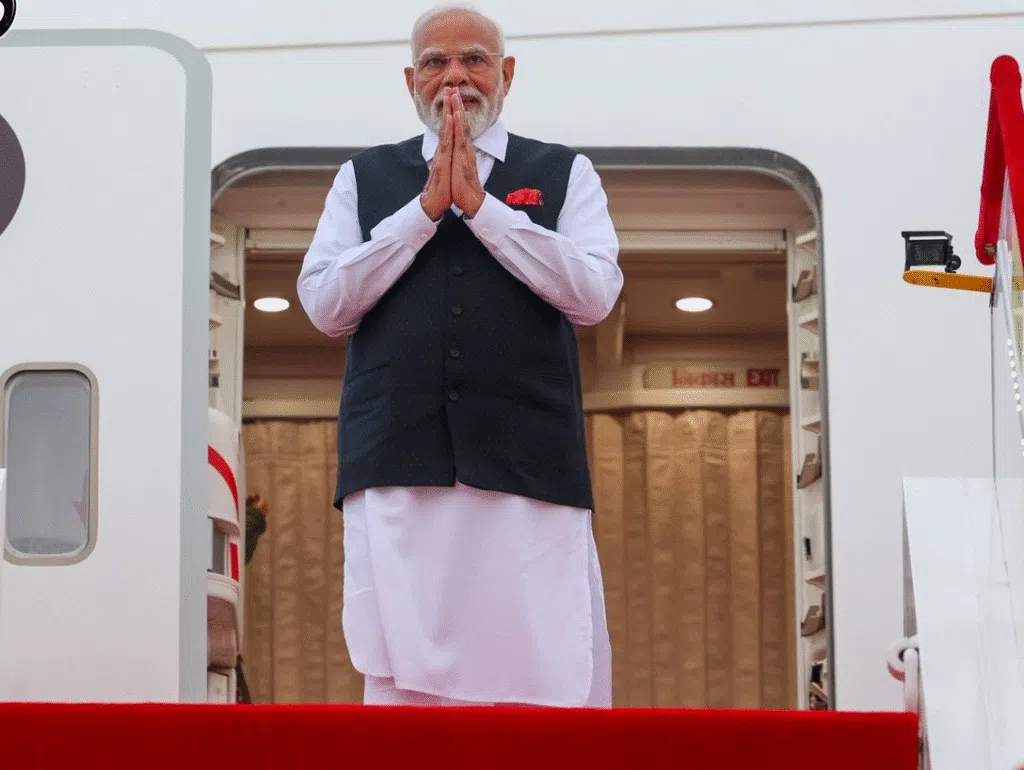
PM Modi arrives in China, greeting with Namaste on red carpet after disembarking plane at SCO summit
Modi Receives Grand Welcome in Tianjin
Consequently, PM Modi landed in Tianjin on Saturday evening to thunderous applause and traditional Chinese performances. Meanwhile, Chinese officials rolled out red carpets and organized cultural celebrations featuring Indian classical music. Moreover, enthusiastic chants of “Bharat Mata Ki Jai” echoed through the venue as diaspora members welcomed their leader.
The Chinese government deployed its finest diplomatic protocol for this crucial PM Modi China SCO Summit reception. Subsequently, performers showcased Bharatanatyam dance and played “Vande Mataram” on traditional instruments. Indeed, these gestures symbolized the warming relations between Asia’s two largest nations.
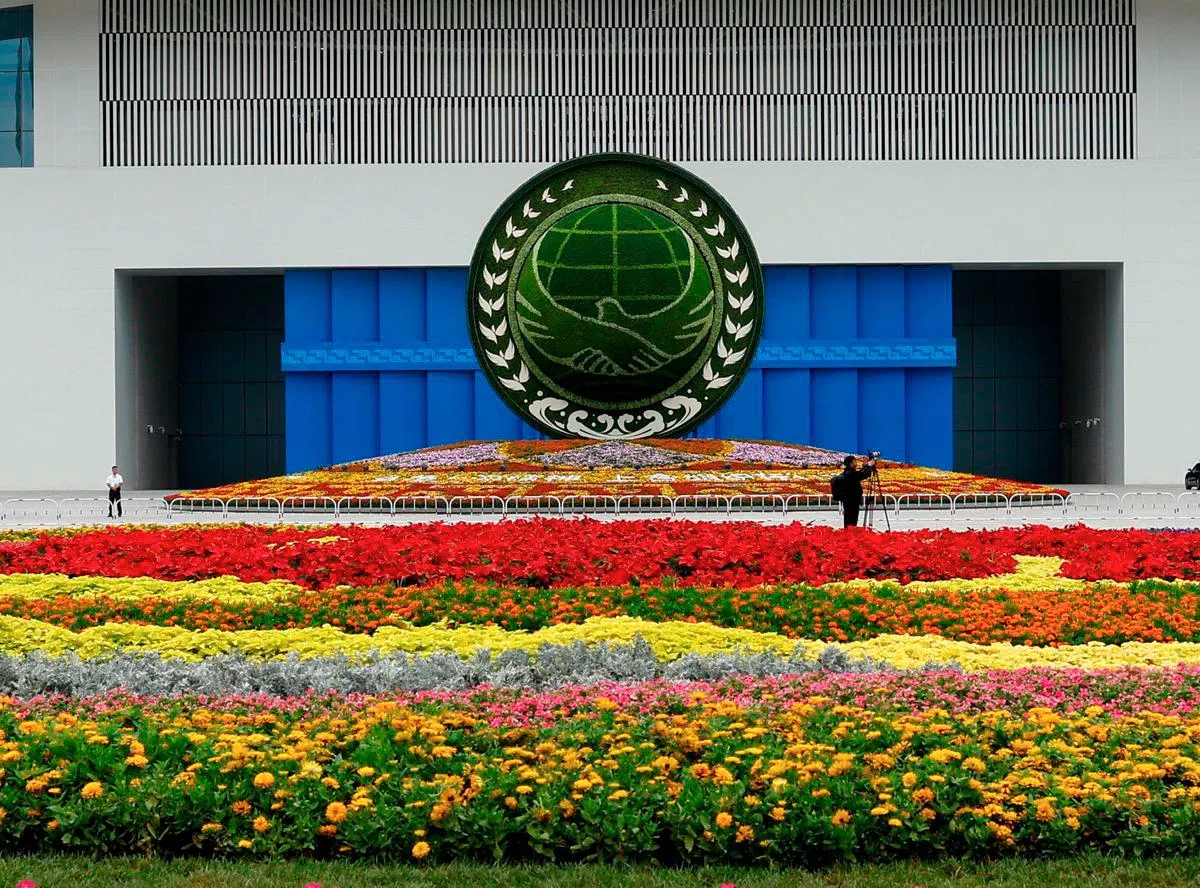
Venue of the SCO Summit 2025 in Tianjin, China, featuring the organization’s emblem and vibrant floral arrangements.
Xi Jinping Bilateral Meeting Takes Center Stage
Nevertheless, the most anticipated aspect involves PM Modi’s bilateral discussions with President Xi Jinping scheduled for Sunday. Therefore, diplomatic experts worldwide watch these talks closely as both leaders seek strategic reset opportunities. Similarly, this PM Modi China SCO Summit engagement could reshape regional power dynamics significantly.
“Given the current volatility in the world economy, it is important for India and China, as two major economies, to work together to bring stability to the world economic order,” Modi emphasized recently. Essentially, both nations recognize their shared responsibility in maintaining global economic stability. However, longstanding border disputes and security concerns remain challenging topics for discussion.
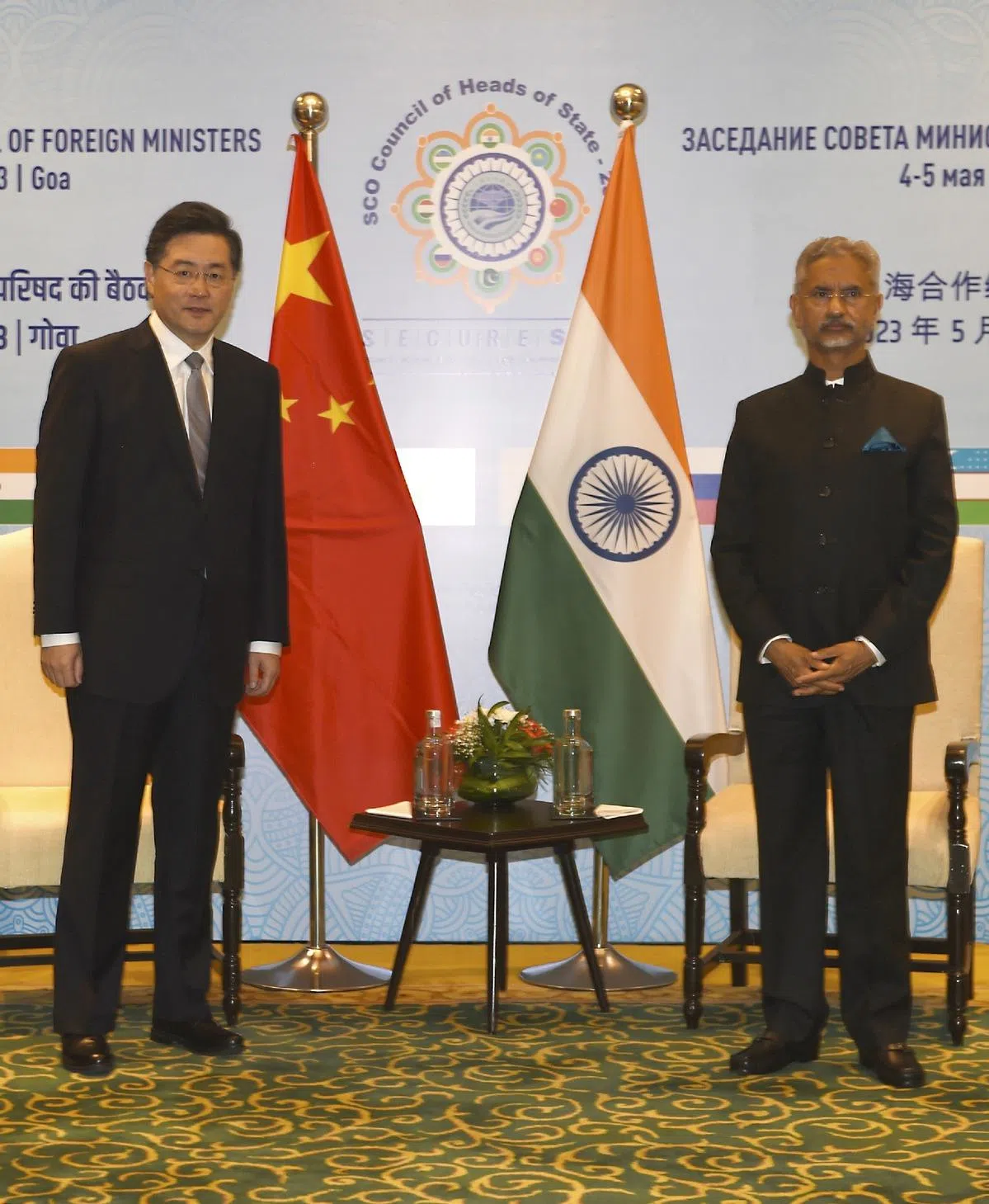
India and China flags displayed during the SCO Council of Heads of State meeting, symbolizing diplomatic engagement between the two nations
SCO Summit’s Growing Global Significance
Furthermore, the Shanghai Cooperation Organization Summit brings together over 20 world leaders in Tianjin. Notably, this PM Modi China SCO Summit gathering represents the largest assembly in the organization’s 25-year history. Additionally, participants include Russian President Vladimir Putin, Turkish President Erdogan, and UN Secretary-General Antonio Guterres.
The summit’s agenda encompasses regional security, counter-terrorism efforts, and economic cooperation initiatives. Moreover, discussions will focus on establishing an SCO Development Bank modeled after BRICS institutions. Simultaneously, leaders plan to adopt a ten-year development strategy during this historic gathering.
“The SCO Summit will review 25 years of achievements and chart the organization’s future course,” Chinese officials announced. Importantly, member states represent 43 percent of global population and 23 percent of world economy. Therefore, decisions made during this PM Modi China SCO Summit could influence international relations significantly.
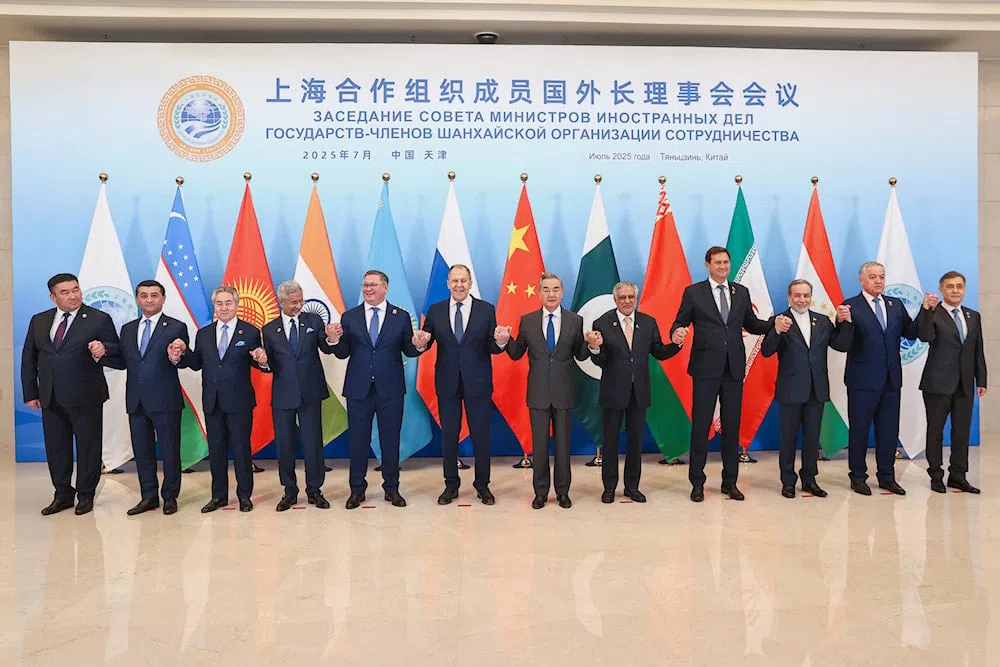
Leaders of SCO member countries at the 2025 SCO Foreign Ministers Council meeting in Tianjin, China, showcasing unity during the summit.
India-China Relations Experience Strategic Reset
Previously, bilateral ties suffered severe damage following the deadly 2020 Galwan Valley clashes. However, recent diplomatic exchanges signal cautious attempts at rebuilding trust between neighboring powers. Consequently, China’s Foreign Minister Wang Yi’s August visit to New Delhi marked substantial progress.
The two nations initiated several confidence-building measures including resumed border talks and visa relaxations. Additionally, direct flights between countries will restart in September after five years of suspension. Furthermore, China recently eased restrictions on urea shipments to India, the world’s largest fertilizer importer.
“Stable, predictable, and amicable bilateral relations between India and China can have a positive impact on regional and global peace and prosperity,” Modi stated. Accordingly, both leaders recognize the necessity of managing differences while pursuing cooperation opportunities. Nevertheless, maritime tensions and territorial disputes continue requiring careful diplomatic navigation.
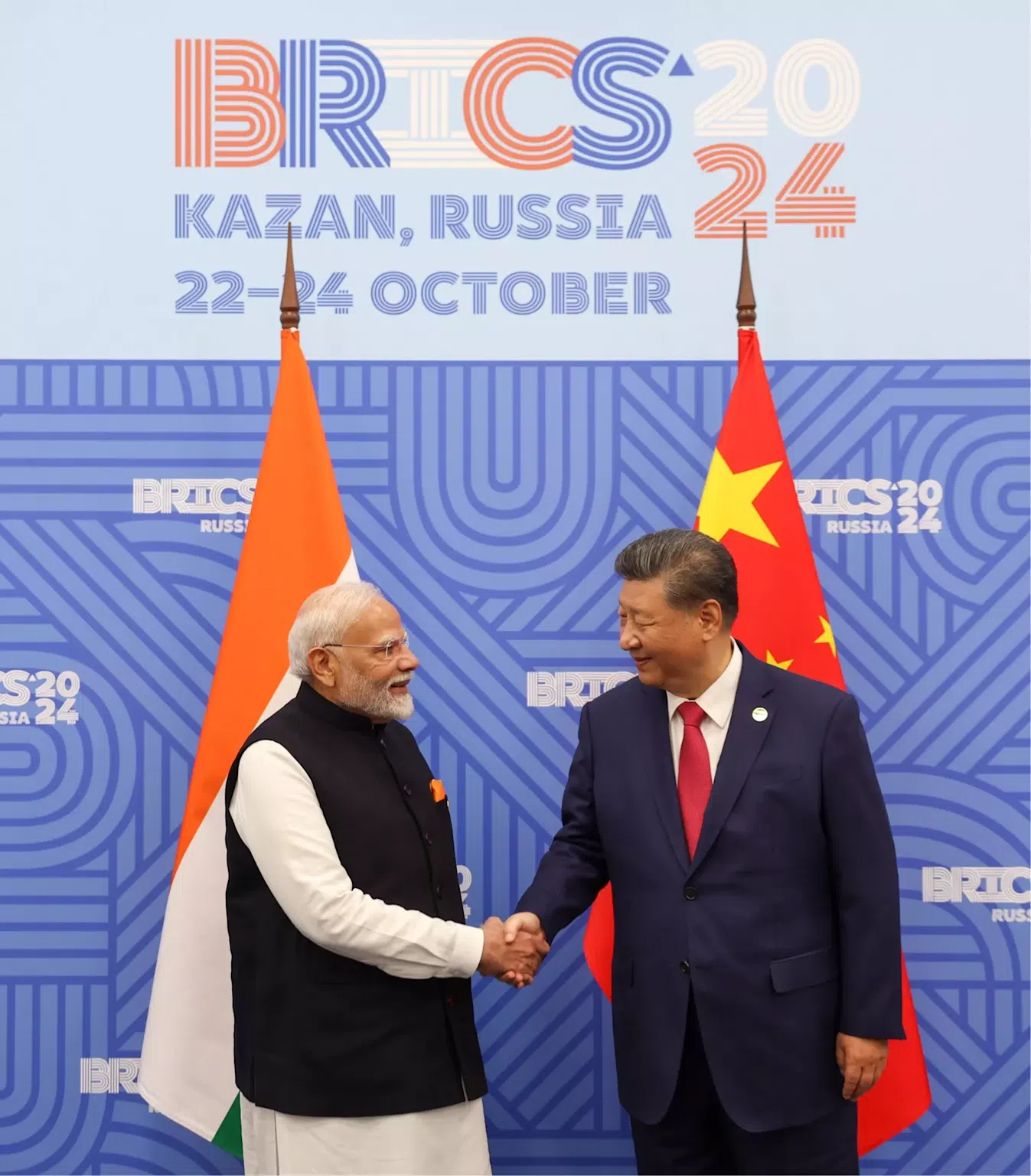
Prime Minister Narendra Modi shakes hands with Chinese President Xi Jinping during the BRICS 2024 summit in Kazan, Russia, symbolizing diplomatic engagement
US Tariffs Push Asian Giants Closer Together
Significantly, Trump’s imposition of 50 percent tariffs on Indian goods altered regional diplomatic calculations entirely. Meanwhile, these punitive measures affect sectors employing millions of workers including textiles and jewelry. Consequently, the economic pressure forces India to diversify its international partnerships beyond Washington.
“Trump’s tariff war puts US brand globally ‘in the toilet’ and pushes India closer to China,” former National Security Advisor Jake Sullivan warned. Moreover, analysts estimate these tariffs could reduce India’s annual growth by 0.6-0.8 percentage points. Therefore, this PM Modi China SCO Summit assumes greater strategic importance amid deteriorating US-India relations.
Indian Commerce Minister Piyush Goyal declared India “will neither bow down nor ever appear weak” to American pressure. Instead, New Delhi focuses on capturing new markets and strengthening existing partnerships. Consequently, closer cooperation with China becomes increasingly attractive despite historical tensions.
Economic Cooperation Prospects Emerge
Currently, China remains India’s second-largest trading partner with bilateral trade exceeding $118 billion annually. However, India faces a concerning $100 billion trade deficit with its northern neighbor. Nevertheless, both countries recognize opportunities for mutually beneficial economic collaboration.
Manufacturing sectors show particular promise for enhanced cooperation during this PM Modi China SCO Summit period. Additionally, technology transfer agreements could boost India’s domestic production capabilities significantly. Furthermore, infrastructure development projects under the Belt and Road Initiative offer potential partnership avenues.
“Relations with India are very important, and it shows that China and India can collaborate in many areas including infrastructure, green transition, and the digital economy,” Chinese expert Wang Huiyao observed. Similarly, renewable energy and artificial intelligence emerge as promising cooperation sectors. Moreover, disaster management coordination becomes crucial following recent floods affecting both nations.
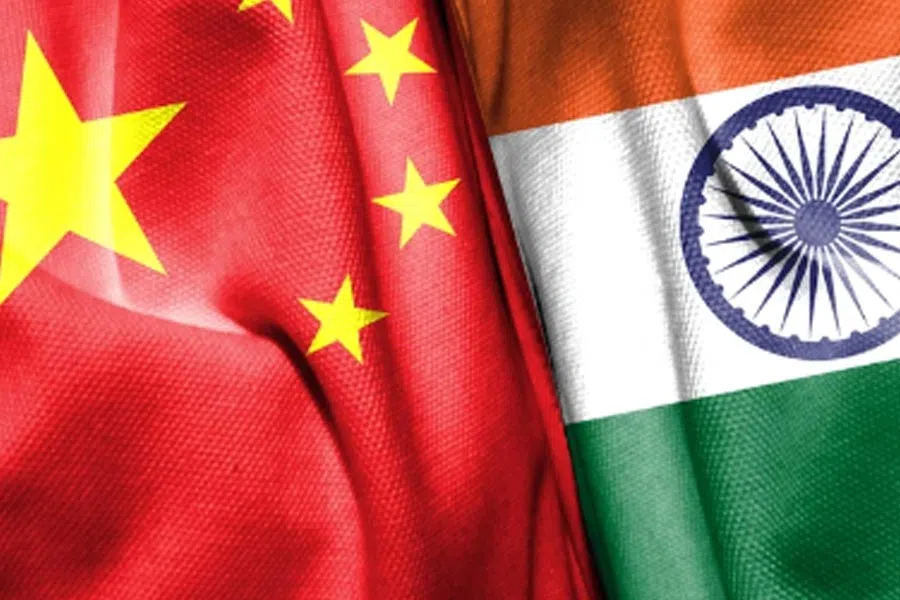
Flags of China and India side by side representing diplomatic relations between the two countries
Strategic Implications for Regional Order
Ultimately, this PM Modi China SCO Summit represents more than bilateral diplomacy between Asian powers. Rather, it signals potential realignment toward multipolar world order challenging Western-dominated institutions. Additionally, the gathering demonstrates Global South unity amid increasing trade protectionism worldwide.
Regional experts predict this engagement could revive the Russia-India-China trilateral format effectively. Subsequently, such cooperation might counter perceived American unilateralism and economic coercion globally. Therefore, Washington monitors these developments with considerable interest and concern.
The summit’s outcomes will influence India’s strategic autonomy doctrine and multi-alignment foreign policy approach. Consequently, New Delhi seeks to maintain beneficial relationships across different power centers simultaneously. However, balancing competing interests requires exceptional diplomatic skill and strategic patience.
This historic PM Modi China SCO Summit ultimately reflects changing global dynamics where traditional alliances face unprecedented challenges. Nevertheless, both nations must navigate carefully between cooperation opportunities and persistent security concerns. Therefore, the world watches anxiously as Asia’s giants attempt their delicate diplomatic dance.





